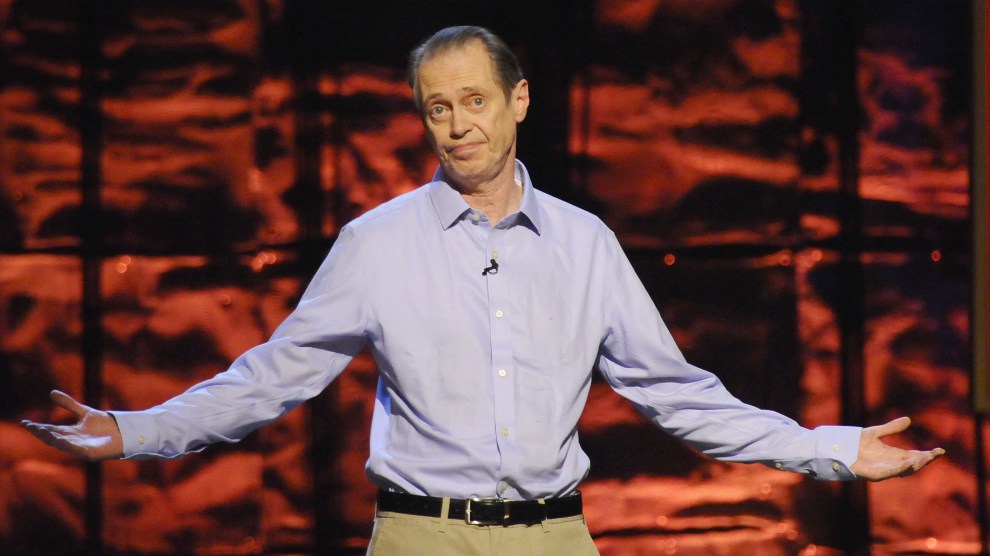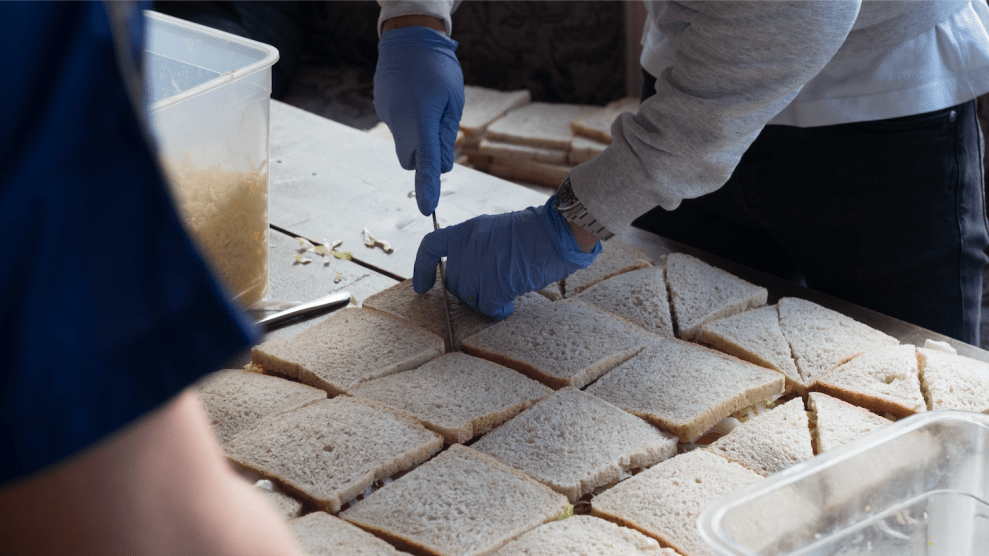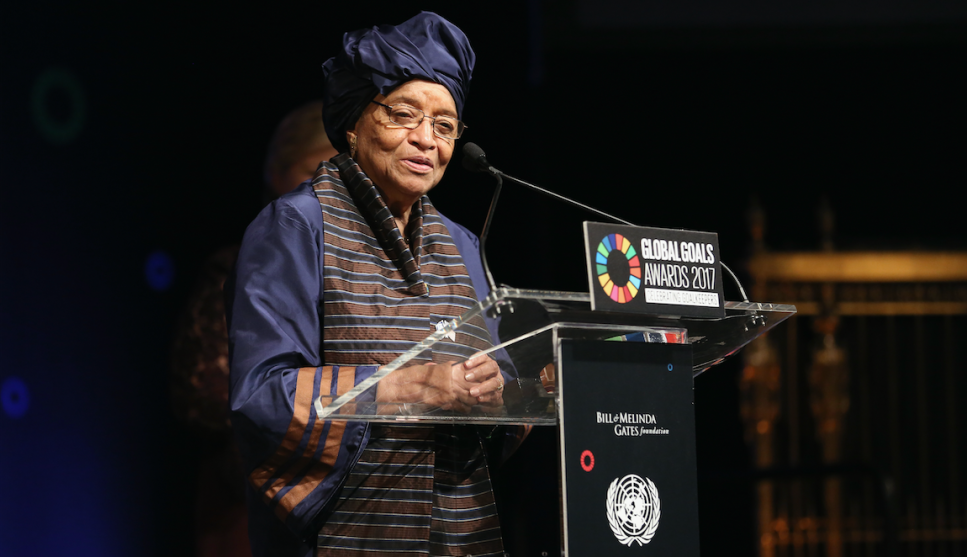There’s enough tension and anticipation to edge out of view the countless stories of strength and stamina (and some justice) today, but whatever happens, each will be here long after the results. Here are 30 boosts to cross the finish line. Thanks to many readers who sent tips:
1. A California man donated 25,000 baseball cards to a 9-year-old who’d lost her collection in a wildfire. Kevin Ashford had planned to sell online but donated after news of her loss. “It’s just one thing after another during 2020,” he said. “I just want to make it a little easier for these kids.”
2. Winners of the 2020 disability-reporting awards will be celebrated tonight. Watch live, and congratulations to Lakeidra Chavis, Jodi S. Cohen, and Jennifer Smith Richards for scoring top honors from the National Center on Disability and Journalism.
3. When a DC gym found out that a 90-year-old woman was watching classes from her window all day, the gym staff painted her a mural. She’s a former dancer who’d performed 70 years ago with a renowned dance company.
4. Someone give 7-year-old Cavanaugh Bell anything he wants. He’s been donating trucks full of pandemic supplies to a South Dakota reservation, the most poverty-stricken in the country, through his nonprofit, Cool & Dope, which aims to reduce bullying across the map.
5. A 12-year-old discovered the bones of a 69-million-year-old dinosaur. Let me repeat that: A 12-year-old discovered the bones of a 69-million-year-old dinosaur. What have you found? I discovered old unsweetened almond milk in my fridge.
6. In memory of her 13-year-old son, who was hit by a car in 2011 while he was trick-or-treating, Crystal Conover’s neighbors banded together this Halloween to decorate her lawn on Jayden’s favorite holiday, after her exhaustion had set in. She welcomed the support.
7. Hikaru Nakamura raised almost $10,000 for Doctors Without Borders by playing 77 charity chess matches simultaneously. He’s the US champion and the world’s fastest. I could take him.
8. All ages welcome to the Sesame Street jam session at Jazz at Lincoln Center with Big Bird, Elmo, all the jazz greats. Preview here, full show here.
9. She the People, a voter-turnout group, has ramped up efforts in battleground states to mobilize more voters, with strong results.
10. A painting, missing for decades, by Jacob Lawrence, part of his renowned Struggle series, has been discovered and given a prominent spot in public view. It was last seen in 1960.
11. Sarah Haider—an engine of brilliance in media criticism, moral philosophy, secular humanism, and human rights—has launched a newsletter. She’s an outstanding writer who shreds fallacies, improves public dialogue, and does it rigorously and constructively, without any of the venom and vilification so encouraged on social media. Hat-tip to Haider. She threads a crucial needle, focusing on hard, necessary criticism of ideas and institutions wherever her interests take us. Intro here, subscribe here, Twitter here.
12. Jazz singer Cécile McLorin Salvant landed a MacArthur Foundation fellowship. She’s the only musician in this year’s group of “genius grant” winners.
13. One of the most inventive and thrilling pianists on earth, Vijay Iyer, has shared a playlist of most of his albums of the past 25 years: “Listen on shuffle if you feel like it. It’s only 17 1/2 hours long.”
14. Saxophonist David S. Ware’s birthday would have been this Saturday. Revisit my 2003 interview in his New Jersey home (and meet his pups Bibi and Mikuro).
15. The New York band Stern has a new pandemic song, his third quarantine blues, as original and transporting as his first. “It’s an angular little ditty about the unstable world we live in and the insistence on recalling more pleasant memories in the face of depression, encroaching fascism, plague, and poverty,” he tells me. You’ll drift into it—a surreal soundscape of impending armageddon or absolute glory—or run screaming for the hills.
16. Congratulations to Geeta Anand on becoming dean of UC-Berkeley’s journalism school: “I am thrilled to be the first woman of color—indeed, the first woman—to serve as dean of Berkeley Journalism.” Read her full letter.
17. California beaches offer wheelchairs with enhanced wheels that roll over sand. “[My mother] will turn 91 in September. She has Alzheimer’s and is in hospice,” wrote a beachgoer. “She asked to go close to the water…We saw dolphins and all sorts of birds, and enjoyed a beautiful sunny day. The beach wheelchair made getting around very easy and it was comfortable for her. Thank you!” Reserve here.
18. The newly launched Black Music Library has digital books, articles, documentaries, and podcasts, created by Jenzia Burgos: “I’ve been working on this project for the last few months and it’s finally ready to share!”
19. In response to Dan Rather’s tweet “I just want to live in an America where I can give my grandson a hug,” a reader replied, “I have a neuromuscular disability and it hasn’t been safe for me to venture out in public since February. I just wish people would value my life as much as they value their own.” Dear ElizabetteUnplugged: I read your note. Your writing is good. People should read more of it. Say hello at recharge@motherjones.com.
20. The World Food Program scored the Nobel Peace Prize for hunger-relief efforts during the pandemic, focusing on countries torn by war.
21. 2020 is for the birds: A bunch of birds have been crashing into skyscrapers, but New Yorkers are rescuing them in record numbers. NatGeo’s Natasha Daly has the inspiring story, with Jeffery Jones’ moving photos and David Beard’s newsletter lift.
22. The Robert E. Lee High School in Fairfax, Virginia, has been renamed the John R. Lewis High School after the civil rights leader, who eked out Barack Obama and Cesar Chavez for naming honors.
23. There’s a ton of goodness coming from reporter Julia Métreaux, who writes movingly and expertly on pop culture, activism, chronic illness, disability, and so much more, including today’s powerful piece on Troy Kotsur, the Deaf actor who helped create Tusken Sign Language in The Mandalorian. Follow Métreaux wherever her writing and interests take us.
24. Nursing-home isolation is one of the (un)hidden perils of the pandemic, but a class of elementary students found a workaround, holding a Halloween party and waving through windows. “The residents are so excited,” said the center’s director. “They love to see the children in costumes and their smiling faces, and they’ve been talking about it for the better part of a week now.”
25. Recharge readers know that I never resort to animal videos. Here’s a shameless animal video.
26. Happy birthday today to a human: this writer’s father. Zoom party coming up.
27. Reader John Jeffrey Linderman of Michigan writes, “Yes, I have hope. In spite of the daily evidence of dysfunction in the US, I still believe that the majority of Americans are good, decent, and thoughtful. Yes, we have many bad actors…My dreams of healing would include surviving the election with a minimum of violence throughout the nation. We must be laser-focused on providing assistance to individuals suffering—first responders, health care workers, families, small businesses enduring devastation. Recovering from misery takes a long time and much courage. Our first priority must be addressing the pandemic, but just as importantly, many of our relationships, including longtime friendships, need healing…In spite of my deep fears about the state of our nation, I’m confident we will not only survive but become stronger.”
28. Vote.
29. Spin the full Recharge blog anytime.
30. Open call: recharge@motherjones.com.










